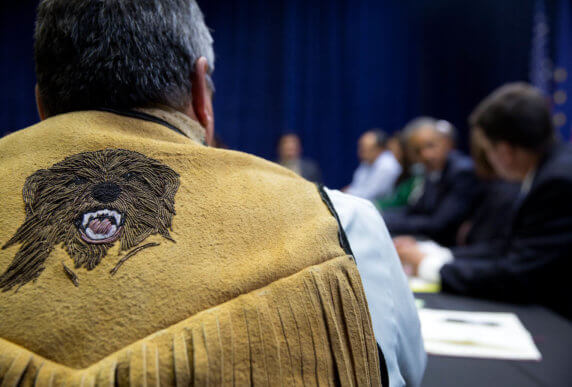Coalition Calls on International Maritime Organization to Prohibit Heavy Fuel in Arctic Waters as 2016 Antarctic Ban Takes Effect
ANCHORAGE — As polar ice recedes, increased Arctic vessel traffic increases the urgency to craft protections for fragile Arctic marine environments and communities.
The Arctic Council has identified a heavy fuel oil spill as the top risk posed by increased vessel traffic. But, heavy fuel oil has yet to be regulated in Arctic waters.
We are calling on the International Maritime Organization to prohibit the use of heavy fuel oil in Arctic waters at its upcoming meeting April 18-22.
In 2010, the IMO adopted a ban of heavy fuel oil in Antarctic waters which takes full effect this year.
Recent recognition of the risks posed by heavy fuel oil include President Obama and Prime Minister Trudeau’s highlighting the need to“best address the risk posed by heavy fuel oil use and black carbon emissions from Arctic shipping” in their March 10 U.S.-Canada Joint Statement on Climate, Energy, and Arctic Leadership.
The insurer Allianz, in a March 21 report on shipping trends, found that Arctic casualties are rising. “There were over 70 reported shipping incidents in Arctic Circle waters during 2015—up almost 30% year-on-year, the highest in a decade. The incoming Polar Code is welcomed, but safety questions remain about best practices and clean-up.”
The Arctic marine environment is remote, dangerous, fragile, and severe. Storms routinely reach hurricane force, waters are ice-filled and poorly mapped, communication systems can easily fail, and substantive spill response or search and rescue can be thousands of miles and weeks away.
Prohibiting the use of heavy fuel oil by shipping in the Arctic will produce a number of significant environmental and social benefits. These include reducing black carbon emissions that could severely impact arctic climate. As well, risks will be reduced to the security of indigenous peoples who depend for food on marine resources vulnerable to oil spills.
Contact:
Kevin Harun, Arctic Program Director, kharun@pacificenvironment.org, 1-907-440-2443
Sue Libenson, Senior Arctic Program Officer, slibenson@pacificenvironment.org, 1-907-303-0022



